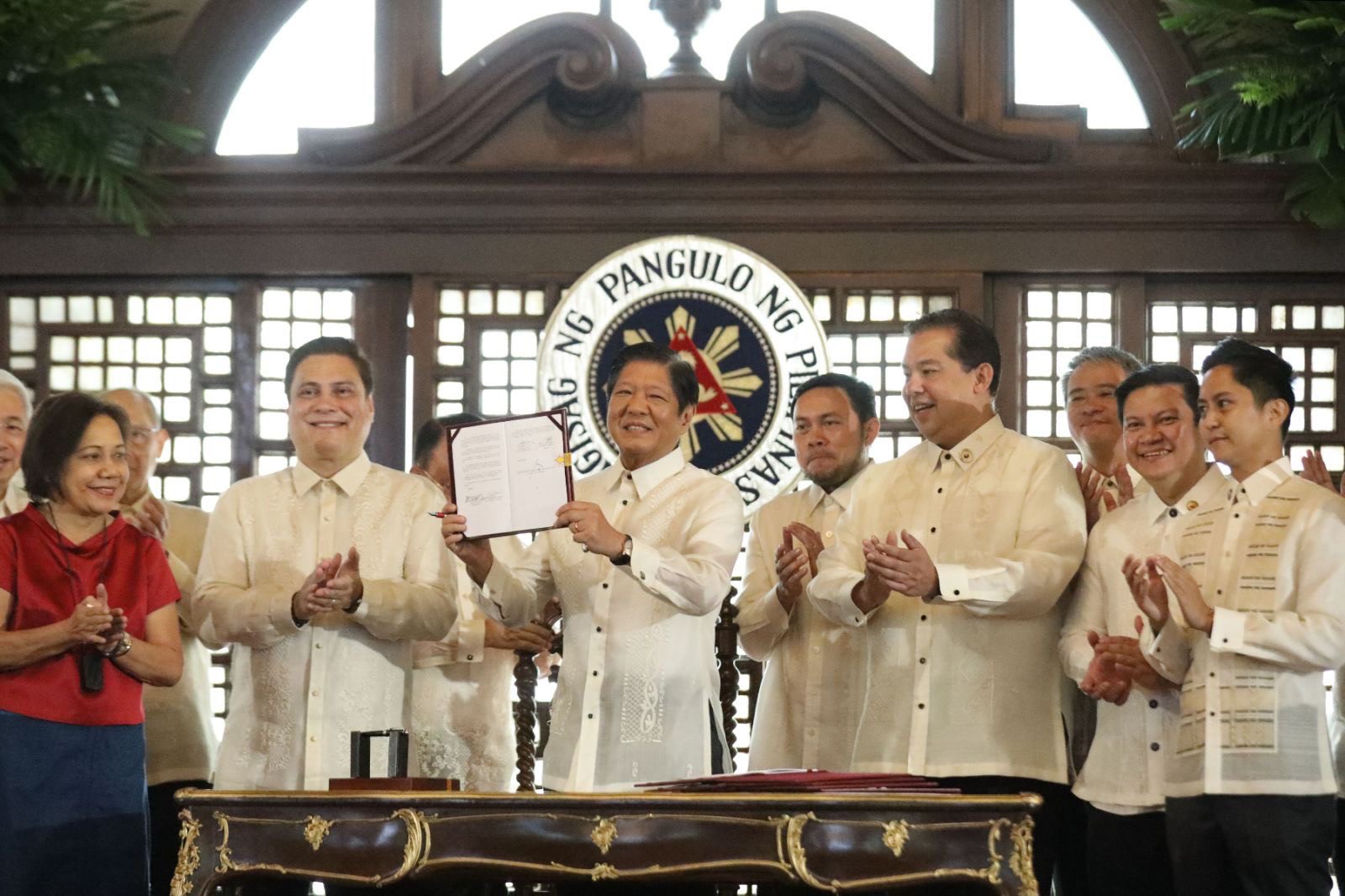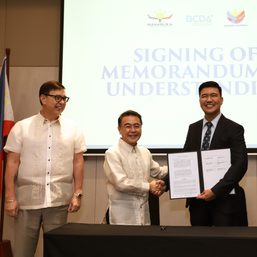SUMMARY
This is AI generated summarization, which may have errors. For context, always refer to the full article.

MANILA, Philippines – The revised implementing rules and regulations (IRR) of the Maharlika Investment Fund now lists fewer specific responsibilities for its audit and risk management committees while also greatly reducing the educational and professional experience requirements for the fund company’s top positions.
The release of the revised IRR comes less than a month after President Ferdinand Marcos Jr. suspended its implementation. Since then, Marcos has met with the officials from different agencies and reworked the IRR to “give the board of directors of the Maharlika Investment Company (MIC) the independence to manage the fund, free from any undue political interference,” according Malacañang press statement on Saturday, November 11.
However, the provisions of the IRR actually strip multiple sections of specific safeguards, leaving Maharlika’s board of directors to specify much of the audit and risk management committees’ responsibilities.
This means that the MIC’s board of directors has much more power over what the audit committee and risk management committee will do.
But who’s in charge of choosing the board of directors? Under the new IRR, the President now has more power to decide who gets to run Maharlika, including the ability to reject the shortlist of candidates presented.
In a statement, monetary board member and the IRR review group member Rosalia de Leon explained that the reason behind the removal of the qualifications in the IRR is to allow “more independence” to the board in determining the specific qualifications of other officers of the MIC “in order to carry out its mandate to efficiently manage the MIF.”
“The President wants the Board to be insulated from political influence and considerations and would like to give the leeway to set the qualifications in the best way they know how based on their experience and expertise in fund management,” De Leon said.
Rappler previously reported that the Maharlika fund was suspended to allow Marcos to look into the selection process of applicants and nominees of the MIC, according to government sources. (READ: Nope, Maharlika fund IRR suspension isn’t due to banks’ concerns)
Reporters have reached out to Malacañang for comments on how the revisions have made the Maharlika fund more independent as claimed in the Presidential Communications Office press release, as well as how these revisions impact the list of nominees already submitted to the Office of the President.
Here’s what changed in the revised IRR.
1. Audit Committee stripped of specific functions, membership
One of the most salient changes to the law is the removal of the specific functions and membership of the Maharlika Investment Corporation’s (MIC) audit committee.
Previously, the IRR specifically outlined the membership of the committee, which was supposed to be chaired by one independent director, and composed of an ex-officio member of the board, a regular director, and two senior executives of the investment company.
The old IRR also listed at least six specific responsibilities that the audit committee should possess, like overseeing the company’s internal controls, coordinating with the Commission on Audit, reviewing the reports of internal and external auditors, ensuring that internal auditors have “free and full access to all the MIC’s records,” and “developing a transparent financial management system.”
Now, the entire section has been reduced to one short sentence: “The Board shall organize an Audit Committee and prescribe its functions and membership.”
2. Risk Management Committee stripped of specific responsibilities
The new IRR also removes the entire portion outlining the specific responsibilities of the Risk Management Committee.
The old IRR specifically states that the risk management committee is responsible to “develop, review, and approve risk policies and procedures” and “ensure the independence of risk management function,” among others.
Now, it simply states that the “specific functions of the Risk Management Committee shall be determined by the Board.”
The revised IRR, however, retained the portion that outlines the membership of the risk management committee, which will be comprised of one independent director as chairperson, one ex-officio member of the board, one regular director, and two senior executives of the MIC.
3. Lighter requirements for directors, company’s top officers
The MIC’s regular and independent directors will no longer be required to have a master’s degree or minimum work experience.
The old IRR explicitly set additional qualifications for education, professional experience, track record, and ethical standards. This meant that regular and independent directors needed to have a master’s degree; minimum 10 years experience in finance, investments, economics, business, or a related field; a strong working track record; and a “commitment to the highest ethical standards, integrity, and compliance with relevant laws and regulations.”
These provisions were removed in the new IRR.
The MIC’s president and chief executive officer (PCEO) position is now also stripped of educational requirements. In the old IRR, candidates for the position were required to have an advanced masters or doctorate degree from a “reputable university.” There is now no education requirement specified.
The chief investment and operating officer (CIOO) for the MIC now also has a much shorter list of qualifications.
In the original version of the IRR, the CIOO had to have a master’s or advanced degree in finance, economics, business administration, or a related field. The candidate was also supposed to have a “proven track record of at least 10 years in senior investment management roles.”
The old IRR also specified nine skills that the CIOO should have, including “a track record of sound judgment” and “strong ethical standards and commitment to responsible investing practices.”
Now, all these requirements have been reduced to a single line: “The CIOO must have a degree in Finance, or a related field and has proven expertise in managing a team of financial analysts and investment professionals.”
The new IRR also removed all mentions of the MIC’s corporate secretary. Previously, the IRR outlined the duties and qualifications of the corporate secretary.
4. Presidential power to reject nominees for board directors, PCEO
The revised IRR now gives the President the explicit power to accept or reject the nominees for directors and PCEO shortlisted by the Advisory Body. The President may also require the Advisory Body to submit an additional list of nominees.
The old IRR only stated that the “Advisory Board shall submit to the Office of the President the list of nominees for PCEO, Regular, and Independent Directors not later than 30 days from the effectivity of these rules.”
The Advisory Body will be composed of the secretary of the Department of Budget and Management, secretary of the National Economic and Development Authority, and the treasurer of the Philippines. – Rappler.com
Add a comment
How does this make you feel?
![[Just Saying] SONA 2024: Some disturbing points](https://www.rappler.com/tachyon/2024/07/TL-marcos-sona-points-july-23-2024.jpg?resize=257%2C257&crop=335px%2C0px%2C720px%2C720px)




There are no comments yet. Add your comment to start the conversation.